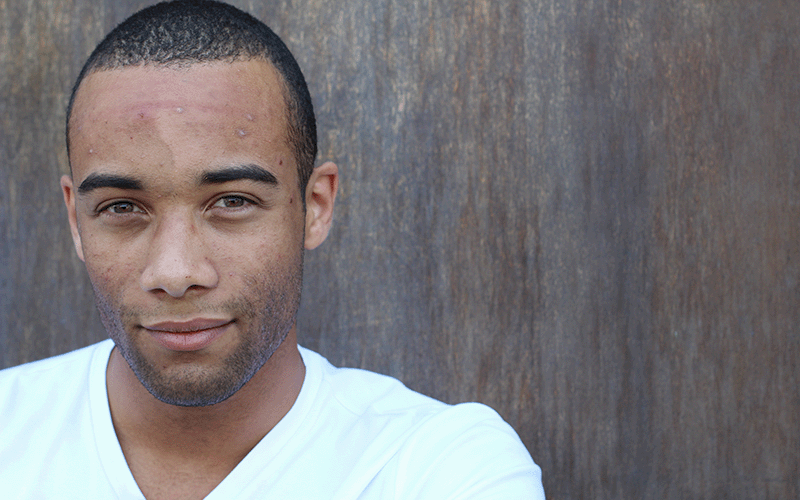Cystic acne is a serious, often painful condition that can lead to permanent scarring if not professionally treated by a dermatologist. Unlike milder forms of acne, cystic acne won’t simply clear up on its own or with over-the-counter medications.
If you have stubborn, severe acne that has continued for two to three months and nothing seems to help, you might have cystic acne.
Typically, cystic acne appears during the teen years or early 20s, but it can affect anyone from age eight to 50. Though cystic acne is more common in men, it can also occur in women. In addition, it can show up on the face, chest, back, shoulders or upper arms.
Luckily, there are a number of medical options proven to successfully treat cystic acne in patients of all ages. Which is the best cystic acne treatment option for you?
What Causes Cystic Acne?
When pores in the skin become clogged with dead skin cells, the normal bacteria that live in your pores grows, triggering the immune system to react with redness and swelling. The result is typically a pimple.
When a pore in your skin gets clogged with dead skin cells, the normal skin bacteria that live in the pore may grow. This, in turn, causes your immune system to react with redness and swelling, resulting in a pimple. Cystic acne happens when the inflammation goes deep into your skin, creating a red, tender bump that is often full of pus. If a cyst bursts, the inflammation can get worse and even lead to permanent scarring.
The exact causes of cystic acne are unknown, but individuals whose parents had severe cystic acne are more vulnerable to also having cystic acne.
Cystic Acne Treatments
“If you have symptoms of cystic acne, you should go see your dermatologist,” says Dr. Lauren Snitzer of U.S. Dermatology Partners Sugar Land. “Cystic acne is not like other, milder acne conditions. It won’t respond to over-the-counter medications.”
If you have cystic acne, a board-certified dermatologist can prescribe a number of treatment options — as well as recommend basic lifestyle changes — that can help.
Oral Antibiotics
Antibiotics can help control the growth of bacteria on the skin, as well as lower overall inflammation. The most common antibiotics prescribed for acne are tetracyclines such as minocycline and doxycycline. However, not all cystic acne responds to antibiotics, and sometimes the effectiveness decreases with long-term use.
Prescription-Strength Creams
Prescription-strength creams, lotions, and gels with retinoid — a form of vitamin A — can help unclog pores and make it easier for antibiotics to do their job. These prescription medications — such as benzoyl peroxide and retinoids like Retin-A, Differin, and Tazorac — are much stronger than what is available over the counter. Topical antibiotics can also be prescribed to attack bacteria on the skin and help reduce overall redness. (Often, antibiotics are combined with retinoid treatments or benzoyl peroxide to keep patients from becoming resistant to the antibiotics.)
Oral Contraceptives
For some women, birth control pills that combine estrogen and progestin can help prevent and decrease the symptoms of cystic acne by regulating hormones.
Accutane
Accutane, the brand name for isotretinoin, is another weapon against all causes of acne, as well as cystic acne that is not responsive to antibiotics or other treatments. Accutane reduces the amount of oil released by oil glands in the skin and helps the skin renew itself faster. Typically, Accutane is taken as a pill once or twice a day for around five months. For most patients, skin clears completely after treatment and the effects are permanent. Treatment can be repeated if acne recurs.
“As with any medication, you should always discuss the risks and side effects with your doctor,” says Dr. Snitzer. “And remember, acne therapies take time to work. There is no overnight cure, and typically it gets worse before it gets better.”
Lifestyle Changes to Combat Cystic Acne
The best plan to combat cystic acne is a combination of the right medical treatment and some simple everyday lifestyle changes.
“In addition to medical treatments, there are a number of lifestyle changes you can make to support your treatments and improve cystic acne,” says Lauren Snitzer, MD. “Most importantly, never pick at cysts or blemishes because it can make acne worse.”
Cystic acne is a physically painful condition that can lead to a lot of emotional stress. This stress can cause the body to release more hormones, which can actually make acne even worse. One way to improve the symptoms of cystic acne is to relax and get plenty of sleep and exercise.
High-glycemic foods with a lot of added sugar and starch can also exacerbate acne symptoms. Stay away from processed junk foods like ice cream, candy, soda, white bread, and pasta. Dairy has also been known to worsen acne, so cutting back or substituting cow’s milk with almond or coconut milk may also help clear your complexion.
“Making better dietary choices and eating more whole, unprocessed foods is not only good for your body, but it’s good for your skin, too,” says Lauren Snitzer, MD. “Replace processed junk food with more whole grains, vegetables, and fruits.”
Looking to Visit a Dermatologist for Cystic Acne Treatments?
To learn more about which medical treatment for cystic acne is the best fit for you, contact a board-certified dermatologist at U.S. Dermatology Partners today. We have multiple locations throughout the country, so fill out our simple online form to get in touch with us. One of our local team members will reach out to you shortly to answer your questions or schedule an appointment for you to visit us soon.
Find a location near me
or


